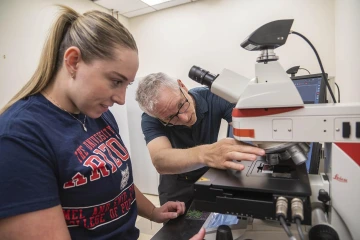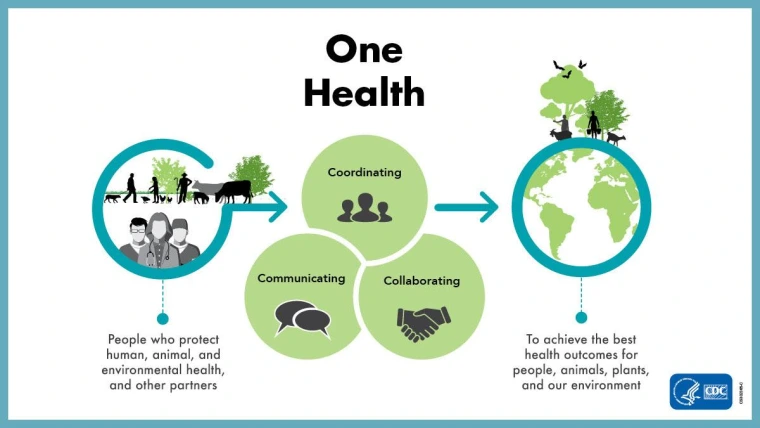One Health Research

One Health researchers study a range of critical problems, such as water quality, pollutants in the environment, and the bidirectional transfer of diseases between animals and humans (zoonotic diseases). Using this comprehensive approach, researchers can understand how the environment impacts human health and find solutions to improve environmental quality while addressing disease outbreaks in both humans and animals. The COVID-19 pandemic, which has a zoonotic origin, presents a timely example of how we are all globally connected to each other and the environment.
One Health often focuses on local environmental challenges, and at the same time, this lens brings a global perspective on health. For example, researchers study the health repercussions of climate change, and how shifts in temperature (often accompanied by droughts or floods) impact broader health outcomes. Humans depend on the cycles that sustain life on earth, such as the water cycle, the carbon cycle and the energy cycle. Along with all other living things, we need clean water, clean air and healthy ecosystems to thrive. One Health research brings this global interwoven perspective, and researchers investigate the web of connections so that we can cultivate a healthy environment that will enable a bright future for all human communities.
The research being conducted, funded by federal, state and local grants, covers a wide variety of public health topics, including:
- Animal health and stewardship
- Antibiotic resistance
- Climate change impacts
- Community engaged scholarship
- Disease surveillance
- Ecotoxicology
- Environmentally acquired illness
- Environmental justice
- Farmworker health
- Food and food production safety
- Human/animal bonds for emotional health and support
- Infection prevention
- Microbiome health
- Public service worker training
- Water quality and security
- Zoonotic disease


